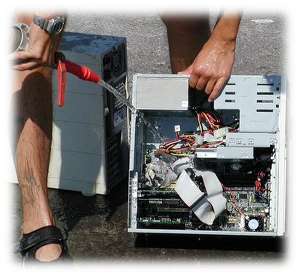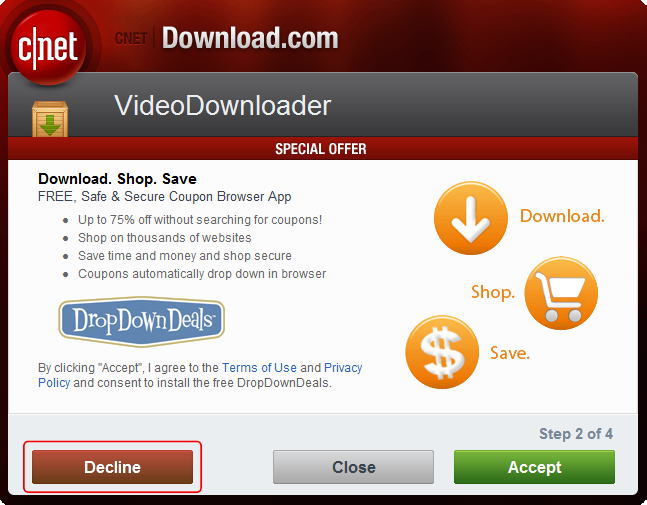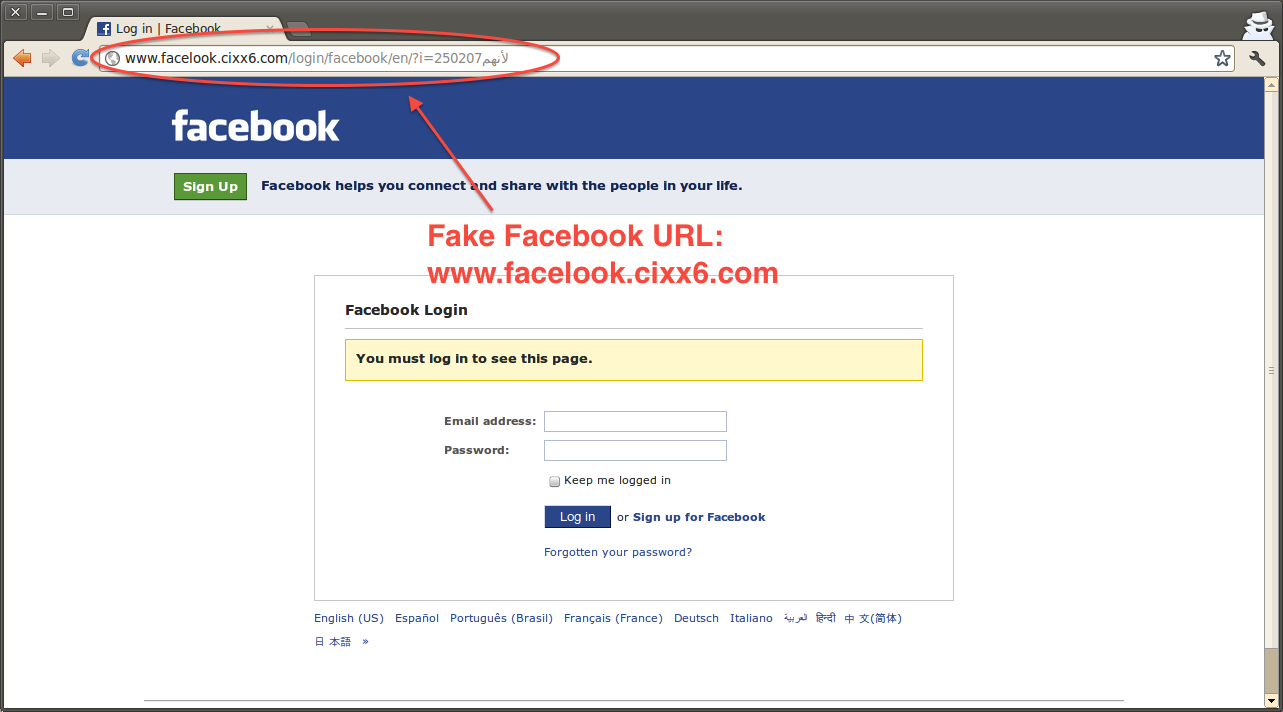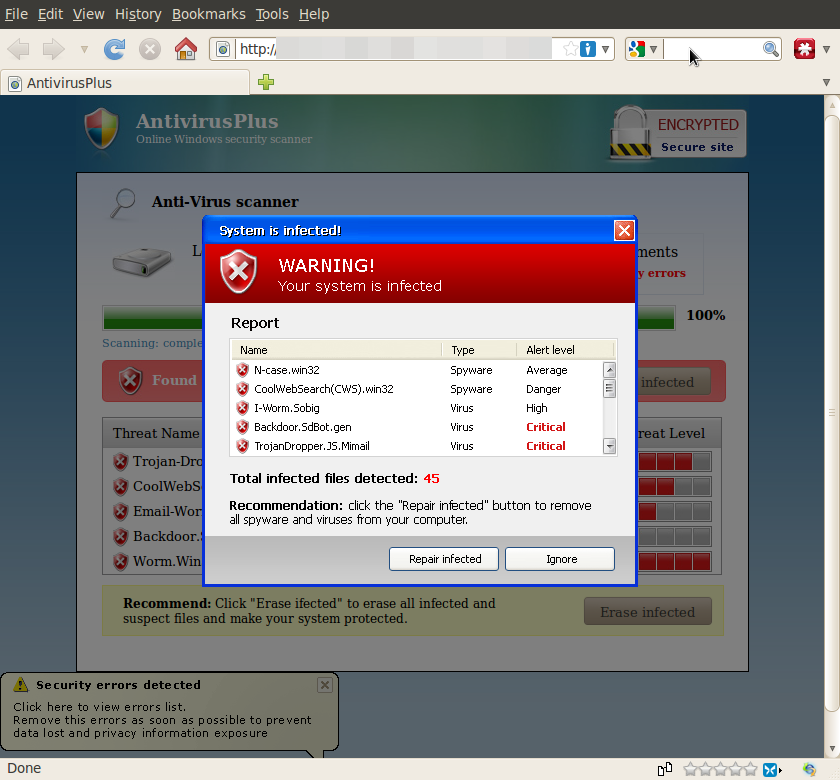Helpful Tips for a Clean PC
On our page about virus scanners, we mentioned that antivirus software isn't a substitute for good computer hygiene. There are a number of things you can do yourself to give your computer the best chance of keeping clean and in peak condition.

- Be mindful of new programs you download and install. Try to make sure the programs you're downloading are from reputable sources. avast! above includes a browser plugin which can help by checking the reputation of sites you visit and warning you if the site has a poor reputation. Some malware is disguised as programs you might want, especially virus scanners, registry fixers and other programs that claim to "fix and tune up your PC". While programs like this do exist (we use some of them ourselves), be careful that what you're downloading is actually what you're after.
 On a related note, be mindful when installing new programs and pay attention to what it wants to install along with it. Even the above mentioned virus scanners will attempt to install "toolbars", which tack on to your internet browser and track your usage, providing your browsing habits to advertising agencies to target ads, while also slowing down your system and decreasing the visual space websites have to display on your screen. You can usually tell the program not to install these extras, but you have to watch for them because they are usually selected to install by default.
On a related note, be mindful when installing new programs and pay attention to what it wants to install along with it. Even the above mentioned virus scanners will attempt to install "toolbars", which tack on to your internet browser and track your usage, providing your browsing habits to advertising agencies to target ads, while also slowing down your system and decreasing the visual space websites have to display on your screen. You can usually tell the program not to install these extras, but you have to watch for them because they are usually selected to install by default.- Don't blindly open attachments in emails you receive, even if they come from someone you know. Many of the large-scale malware attacks that have been shown on the news and published in newspapers spread through infected email attachments. And if the attachment ends in ".exe", ".vb", ".vbs" or ".bat", don't open it unless yu're 100% certain the person who sent it to you is trustworthy, and they have told you verbally the file is safe.
 Make sure the site you're trying to visit isn't fake, especially if it asks you to log in or provide information. An example is you're trying to go to Facebook (http://www.facebook.com), but you clicked on a link in an email or another web page and it takes you to something different (e.g. http://www.faceb00k.com or http://www.facebook.com.fakesite.nl) (another example can be seen by clicking the image to the right). Besides opening up to phishing attacks (where your login details or personal information is sold or used for illegal purposes against your will and without your knowledge), these sites often contain malware and can infect your computer when you visit them. The consequences of this can be much greater than simly an infected computer to, as depending on the information you accidentally provide it can lead to identity theft, or if relating to internet banking can lead toyour bank accounts being emptied. Always check the address of the site you're going to and make sure it's where you want to be.
Make sure the site you're trying to visit isn't fake, especially if it asks you to log in or provide information. An example is you're trying to go to Facebook (http://www.facebook.com), but you clicked on a link in an email or another web page and it takes you to something different (e.g. http://www.faceb00k.com or http://www.facebook.com.fakesite.nl) (another example can be seen by clicking the image to the right). Besides opening up to phishing attacks (where your login details or personal information is sold or used for illegal purposes against your will and without your knowledge), these sites often contain malware and can infect your computer when you visit them. The consequences of this can be much greater than simly an infected computer to, as depending on the information you accidentally provide it can lead to identity theft, or if relating to internet banking can lead toyour bank accounts being emptied. Always check the address of the site you're going to and make sure it's where you want to be. Don't trust internet popups. Be careful about this, as some popups will try to look like they come from your computer, even your virus scanner (such as the example to the right- click for a larger image). Know the name of your virus scanner, and check the name at the top of any popup - if it doesn't match, it's likely a popup from the web site you're visiting. If the popup warns of a problem that requires extreme urgency, or displays a report of errors on your PC and offers to fix them if you purchase or download their software, it's a scam.
Don't trust internet popups. Be careful about this, as some popups will try to look like they come from your computer, even your virus scanner (such as the example to the right- click for a larger image). Know the name of your virus scanner, and check the name at the top of any popup - if it doesn't match, it's likely a popup from the web site you're visiting. If the popup warns of a problem that requires extreme urgency, or displays a report of errors on your PC and offers to fix them if you purchase or download their software, it's a scam.- Avoid Internet Explorer. Internet Explorer is installed by default on most PC's and is developed by Microsoft, and unless you made the effort to download a different browser, chances are you're using it right now. However, it tends to be less secure than other browsers, and many exploits take advantage of security holes in Internet Explorer. Instead, try downloading and using Google Chrome or Mozilla Firefox, which are more secure and tend to be faster and offer better features as well.
- Keep your important files backed up. There are a number of ways to do this. You can buy a portable hard drive and copy your documents, photos, music etc. over to it once a week, in case something happens to your computer hardware or a virus comes along and prevents access to your important files (recently some forms of "ransomware" have been encrypting files and preventing you from access unless you pay the developers hundreds of dollars in ransom). There are also some online services that allow file synchronising to keep your backup files up to date, and make sure that your files are safe away from home in case your hardware if physically lost (stolen, fire, etc.).
- Google it. If you're ever in doubt that a particular file or warning or program is good or bad, type it into Google and see what the internet has to say about it.

